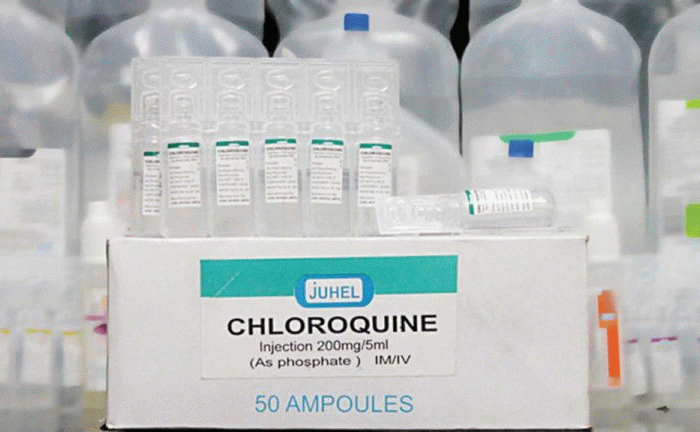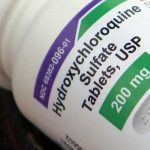FDA cautions against use of hydroxychloroquine or chloroquine for COVID-19 outside of the hospital setting due to risk of heart rhythm problems

In a notice issued on Friday, the Food and Drug Administration (FDA) warned against taking malaria drugs chloroquine and hydroxychloroquine to treat Covid-19 outside a hospital or formal clinical trial setting after “serious” poisoning and deaths were reported. The agency said close supervision is strongly recommended before the drugs can be taken. Hydroxychloroquine has become the most controversial drug since President Trump touted the drug in early March as a potential game-changer.
The agency said it became aware of reports of “serious heart rhythm problems” in patients with the virus who were treated with the malaria drugs, often in combination with antibiotic azithromycin, commonly known as a Z-Pak. It also warned physicians against prescribing the drugs to treat the coronavirus outside of a hospital.
Hydroxychloroquine gained a lot of attention in the United States after a small study of 36 Covid-19 patients published March 17 in France led by renowned French Dr. Didier Raoult, found that most patients taking the drug cleared the coronavirus from their system a lot faster than the control group.
“Hydroxychloroquine and chloroquine can cause abnormal heart rhythms such as QT interval prolongation and a dangerously rapid heart rate called ventricular tachycardia,” the agency wrote in the notice. “We will continue to investigate risks associated with the use of hydroxychloroquine and chloroquine for COVID-19 and communicate publicly when we have more information.”
Patients taking the drugs for approved reasons, including malaria or to treat autoimmune conditions like Lupus, should continue taking their medicine as prescribed, the FDA said.
Below are the excerpts from the FDA notice.
“The FDA is aware of reports of serious heart rhythm problems in patients with COVID-19 treated with hydroxychloroquine or chloroquine, often in combination with azithromycin and other QT prolonging medicines. We are also aware of increased use of these medicines through outpatient prescriptions. Therefore, we would like to remind health care professionals and patients of the known risks associated with both hydroxychloroquine and chloroquine. We will continue to investigate risks associated with the use of hydroxychloroquine and chloroquine for COVID-19 and communicate publicly when we have more information.
Hydroxychloroquine and chloroquine have not been shown to be safe and effective for treating or preventing COVID-19. They are being studied in clinical trials for COVID-19, and we authorized their temporary use during the COVID-19 pandemic for treatment of the virus in hospitalized patients when clinical trials are not available, or participation is not feasible,through an Emergency Use Authorization (EUA). The medicines being used under the hydroxychloroquine/chloroquine EUA are supplied from the Strategic National Stockpile, the national repository of critical medical supplies to be used during public health emergencies. This safety communication reminds physicians and the public of risk information set out in the hydroxychloroquine and chloroquine healthcare provider fact sheets that were required by the EUA.
Hydroxychloroquine and chloroquine can cause abnormal heart rhythms such as QT interval prolongation and a dangerously rapid heart rate called ventricular tachycardia. These risks may increase when these medicines are combined with other medicines known to prolong the QT interval, including the antibiotic azithromycin, which is also being used in some COVID-19 patients without FDA approval for this condition. Patients who also have other health issues such as heart and kidney disease are likely to be at increased risk of these heart problems when receiving these medicines.”

